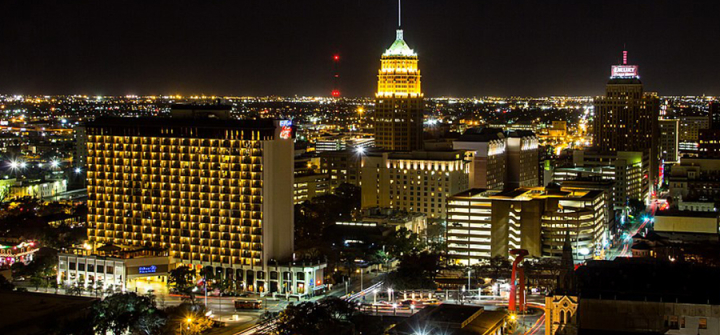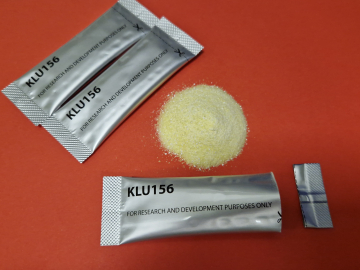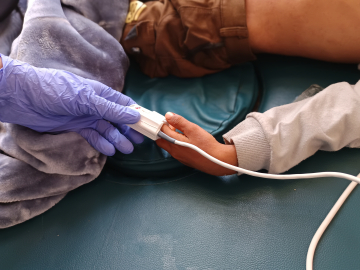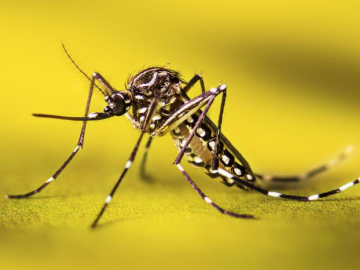Coronavirus Cruise Nightmare Ends with San Antonio-Federal Agreement
SAN ANTONIO – The nightmare cruise is finally over for more than 120 evacuees from the Diamond Princess.
They were released from their COVID-19 quarantine Tuesday afternoon after a battle between local officials and the federal government.
The 120 evacuees were leaving Lackland Air Force Base where they had been quarantined after being returned to the US on February 17 from Yokohama, Japan where the ship docked. More than 700 people on the ship were infected with the novel coronavirus.
The city and county agreed to allow the evacuees to be bused directly to San Antonio International Airport in shifts in time to board flights (or to rent a car to drive home), according to a city news release.
Their 14-day quarantine was to end Monday, but city officials fought to prevent them from entering San Antonio after a woman released from quarantine over the weekend was later found to have tested positive for the virus.
On Monday, the city filed a federal lawsuit seeking to change the CDC’s release protocols and prevent the evacuees’ release from quarantine. After a judge swatted down the lawsuit, Mayor Ron Nirenberg declared a public health emergency barring the evacuees from entering the city. (One of the reasons local officials leapt into action was a reported CDC plan to drop off some of the quarantined evacuees at a local mall near The Cheesecake Factory entrance, the AP reports.)
The standoff was resolved Tuesday when CDC officials changed their protocols so that a symptomatic person would only be released after “2 sequential negative tests within 24 hours” and that no one would be released if there were any outstanding test results. Federal officials also expedited travel plans.
The release of the evacuees capped an intense few days for Dawn Emerick, EdD, the new director of Metro Health, which is responsible for the health of nearly 2 million people in San Antonio and Bexar county.
Just a month into her job, Emerick has been facing COVID-19 for her entire tenure.
Monday’s declaration of a public health emergency followed the revelation that a woman who had been evacuated from Wuhan and released from quarantine later tested positive for the novel coronavirus. After 14 days of quarantine and 2 negative tests, she was released this weekend by CDC officials following their standard protocols. However, a subsequent test came back positive.
“That [was] a huge surprise,” Emerick said in a Monday afternoon interview in her spartan 10th floor office in downtown San Antonio as her dual cell phones vibrated and dinged incessantly with urgent text messages.
By the time the positive result came in, the woman had checked into an airport hotel, taken the hotel shuttle to a mall for a couple hours and ate Chinese food there.
The woman was tracked down and returned to the Texas Center for Infectious Diseases where she had been treated along with 10 other confirmed cases. “She was very cooperative [but] sad. She was ready to go home,” Emerick said.
The patient is being retested to confirm that the third test wasn’t a false positive, Emerick added. Those results haven’t yet been released.
A Metro Health team tracked all of the people who had been in contact with the woman. They began with TCID staff. “They thought she graduated. So everybody was out of gear. They were taking pictures with her and celebrating a graduation, so 18 people were exposed,” Emerick said, adding that 16 of the 18 were deemed low risk. 2 others were told to self-quarantine at home. Other people she encountered at the hotel, on the hotel shuttle or at the mall were considered low risk.
“Most of her contacts were all casual contacts of low duration and low proximity,” Emerick said. “It wasn't a call to action like, ‘Hey, you all need to get to an emergency room’ or anything. It's low risk.”
Now that the new coronavirus has proven its unpredictability, Emerick said her team is focusing on preparedness plans in the event of community transmission—knowing there are a host of unknowns about COVID-19.
“This is a novel coronavirus. It's called novel for a reason,” Emerick said.
Join the tens of thousands of subscribers who rely on Global Health NOW summaries and exclusive articles for the latest public health news. Sign up for our free weekday e-newsletter, and please share the link with friends and colleagues: https://www.globalhealthnow.org/subscribe
Downtown San Antonio on 27 January 2014. Image: Jonathan Cutrer / Wikimedia Commons





